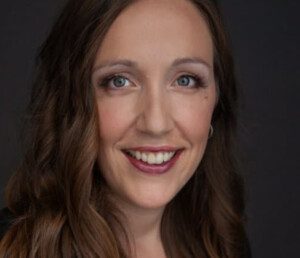If you suspect autism but then read these autistic traits, you might end up swearing you’re not autistic even though you really are.
Sometimes, autism traits that are listed in content about Autism Spectrum Disorder can trick an actually autistic (though undiagnosed) person into thinking, “No way am I autistic.”
There were 10 “warning signs” of autism that came with an article about a female TikToker who was diagnosed with ASD at 22.
It’s the good thing I didn’t read these “warning signs” at the time I began suspecting I might be autistic.
Otherwise, I might’ve ended up thinking, “Nope. I’m not autistic.”
Certainly there will be undiagnosed Autistics reading those 10 signs of suspicion and then concluding that they can’t possibly be on the Spectrum.
I have a clinical diagnosis of ASD. Yet I can only check off six of the signs in that article.
I also know other clinically diagnosed Autists who would not be able to check off all of those bullet points.
Of course, we all know that when someone has a condition, this doesn’t mean that every single trait of that condition applies to them.
But six out of 10 can be enough to discourage an undiagnosed autistic adult from pursuing an assessment.
According to the article about the newly diagnosed young woman, here are the “Specific signs of ASD,” as the article states.
10 “Warning Signs” of Autism
And I put warning signs in quotes because that’s what the article says. Autism is not a danger!
#1 Reactions to smell, taste, look, feel or sound are unusual.
Check for me; I’m extremely sensitive to bad odors; they bother me more than they bother other people.
I’m particularly sensitive to human breath, when nobody else seems to be affected by this.
I can detect foul breath from 10 feet away – even when I’m wearing a doubled-up covid mask. I find it sickening.
There are also certain sounds I absolutely can’t stand. This sensory trait is exceptionally common in autism.
While one Autistic may be affected by only sounds and smells, another may find certain fabrics and food textures intolerable, while a third may find fluorescent lighting very uncomfortable, while not minding strong odors, tastes, feels or noises.
#2 Difficulty adapting to changes in routine.
This is another trait that seems to be nearly universal in autistic people, though the responses occur on a continuum.
For instance, an anticipated change in a simple routine may cause a meltdown in one Autistic, while an unexpected change in a major plan may leave another Autistic fuming internally, yet externally managing the change in a calm and strategic fashion.
Thus far, the vast majority of undiagnosed Autistics will agree with these first two traits.
#3 Unable to repeat or echo what is said to them.
What?!!! An undiagnosed autistic individual could read this and disqualify themselves as being on the Spectrum.
“Many autistic people have excellent memories for words and phrases,” says Dr. Jessica Myszak, licensed psychologist, and director of The Help and Healing Center, whose practice is mostly autism assessment for adults.
“While some people do have more difficulties with auditory processing and executive functioning, this is not a typical sign of autism.”
If anything, autistic children – and adults – have been known to do the opposite: It’s called echolalia.
This means repeating or echoing what they hear people around them saying to each other or to the Autist.
They may also repeat what they hear on TV. Sometimes this is done to practice mimicking socially acceptable responses during common small talk.
Plus, there are autistic people who act in film and theatre. Do you really think they’d be incapable of being able to repeat or echo what is said to them?
#4 Avoids eye contact.
I take issue with the inference that being able to hold eye contact probably rules out autism.
“There is a large range of eye contact in autistic people,” says Dr. Myszak.
“While the experience of eye contact often differs for autistic people, differences may be less obvious to another person.
“Many clients have shared that they look at a person’s eyebrows or forehead, or have developed ‘rules’ for when and how often to look at another person.
“These certainly differ from a neurotypical person’s experience with eye contact, but cannot be accurately summed up as just ‘avoiding eye contact.’”
Avoiding eye contact is a strong suggestion for ASD. However, “Avoids eye contact” should never be in a checklist, as this declaration can discourage people with undiagnosed ASD — but who give eye contact — from seeking an assessment.
Instead, the descriptor should be something like, “May give too little or too much eye contact; overthink the process of giving eye contact; or find eye contact unusually distracting under certain circumstances.”
I have a history of overthinking eye contact and wondering if I’m doing it right while someone is talking to me. But my eyes remain smack on theirs as I listen.
And though I focus better while talking if my eyes are gazing away from the listener, it would be totally inaccurate to say that I “avoid” eye contact.
“For me eye contact is something I learned,” says Justin Donne, a businessman diagnosed with autism at 34.
“Having spent my entire life masking, and then part of my life as a professional actor, I learned everything from eye movements to body language, all as a performance.
“So I do it in everyday life. I’m not particularly sensitive to it, in the sense that it doesn’t bother me.
“I can give and receive eye contact. But this isn’t necessarily natural. I’ve done many ‘drills’ and exercises with posture and eye contact.”
I’ve been in correspondence with people whose clinically diagnosed autistic children had normal eye contact.
I’ve met an autistic man and his teen son who both reported that eye contact has always felt natural to them. I’ve met others who gave direct eye contact, by their admission.
One guy maintained intense eye contact with me during a controlled argument.
My diagnosing psychologist said that people can be on the Spectrum and still have good eye contact.
#5 Difficulty expressing desires using words or motions.
“Desires” needs to be defined here. I’ve heard Autists telling people what they wanted. I myself can easily state my desires.
Many content creators are autistic. Do you really believe that as a general rule, they have difficulty expressing their desires using words?
Any articulate autistic YouTuber will crush this trait. However, there may be some validity with the aspect of “motions.”
Many Autistics may exhibit body language that’s incongruous with the words coming out of their mouth.
#6 Difficulty with acts of affection like hugging.
Another tricky one. One evening I attended a pizza meetup for autistic adults.
At the end, I and a clinically diagnosed autistic woman (whom I’d never met previously) were walking towards our cars. When it was time to part, she asked for a hug!
I’ve also witnessed autistic women, who haven’t seen each other for a while, hugging at autism events.
This trait needs further clarity: Does the difficulty include immediate family members? Close friends? Relatives? Acquaintances? And what about the circumstances?
Plus, there are many neurotypicals who are not huggy-type people. In fact, overly huggy NTs have been known to make other NTs duck for cover.
However, an individual on the Spectrum can clearly sense when their hug tank is naturally near empty even with loved-ones.
For myself, I don’t enjoy hugs unless it’s with my parents or a boyfriend. I’ve read of Autistics, though, who like to hug their friends.
It’s very worth noting that whenever I’ve seen a character on TV hug a doctor or police officer after learning that a family member just died, I’ve always thought that was incredibly silly.
I’ve always thought that if a doctor or police officer ever delivered devastating news to me, the LAST thing I’d want to do is hug them and sob into their chest. Are you kidding me?!
Hugging is a very intriguing human act. At a World Autism Day event, an autistic boy of about six or seven was wrapping his arms around all the adults nearby – who were strangers to him.
This included me, even though I had not spoken to him or even smiled at him.
He just came up and put his little arms around my waist (and I lightly reciprocated so as not to hurt his feelings, though this felt 100 percent mechanical to me; technically, I masked!).
#7 Unable to point at objects or look at objects when others point to them.
“This can be an early sign in very young children, but as people grow older, children and adults learn to understand and use this type of nonverbal communication,” says Dr. Myszak.
“In autistic people without intellectual disabilities, it is pretty rare that this would continue to be an issue after the first few years of childhood.”
#8 Prefer to be alone.
Preference for solitude is very common among Autistics. Won’t argue with this one!
#9 Difficulty relating to other people.
DIRECT HIT! If there’s a universal trait in autism, this is surely it.
#10 Unable to discuss their own feelings or other people’s.
This one’s tricky. I would’ve never thought I was “unable” to do this. But my assessment report pointed out difficulty in this area.
Be Very Leery of Generic Autism Checklists for Signs

Freepik.com
If you suspect you might have ASD and really feel strongly about this suspicion, the one thing you should never do is disqualify yourself based on a short, generic checklist – whether it’s part of an article about an autistic person on TikTok, off a website about developmental disorders or in a pamphlet.
GET AN AUTISM ASSESSMENT!
Dr. Jessica Myszak, a psychologist who specializes in autism assessment for both children and adults, is the founder of Autistic Support Network. She sees clients in-person in the Chicago area and over telehealth in 31 states. Learn more about her practice at helpandhealingcenter.com.
 Justin Donne is an accomplished leader with experience across private and nonprofit sectors, including roles at Disney Parks & Resorts and Autistic Nottingham. He excels in team leadership, budget management and driving growth. Justin is an advocate for positive change and has a strong belief in the power of community, and is a passionate advocate for diversity, equity and inclusion.
Justin Donne is an accomplished leader with experience across private and nonprofit sectors, including roles at Disney Parks & Resorts and Autistic Nottingham. He excels in team leadership, budget management and driving growth. Justin is an advocate for positive change and has a strong belief in the power of community, and is a passionate advocate for diversity, equity and inclusion.
 Lorra Garrick has been covering medical and fitness topics for many years, having written thousands of articles for print magazines and websites, including as a ghostwriter. She’s also a former ACE-certified personal trainer. In 2022 she received a diagnosis of Level 1 Autism Spectrum Disorder.
Lorra Garrick has been covering medical and fitness topics for many years, having written thousands of articles for print magazines and websites, including as a ghostwriter. She’s also a former ACE-certified personal trainer. In 2022 she received a diagnosis of Level 1 Autism Spectrum Disorder.
.















